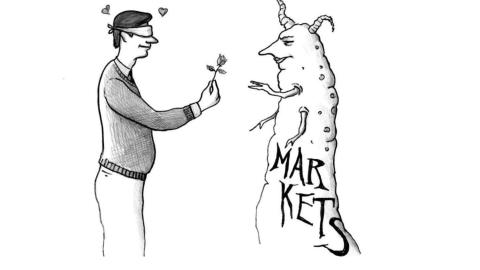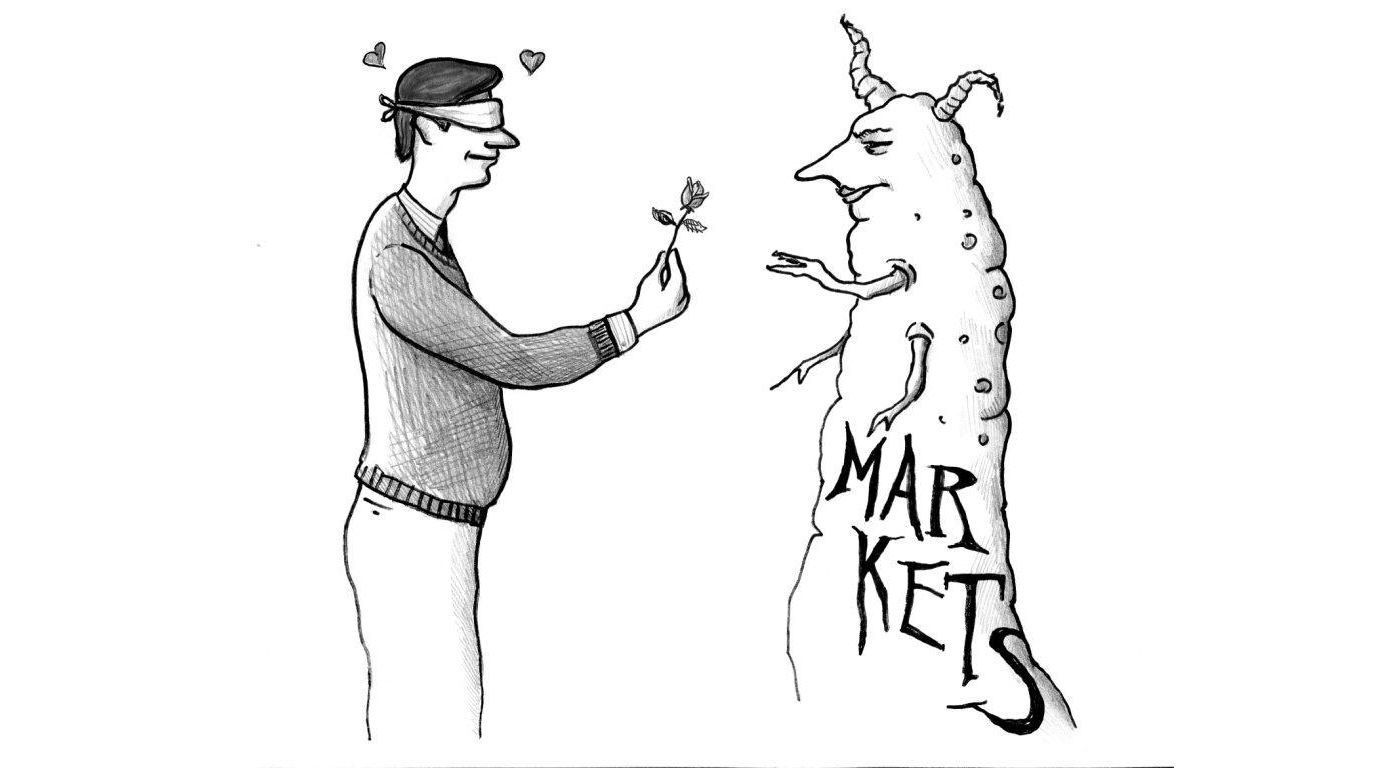Is Market Love Blind?

Many market lovers are so bewitched, they’re blind to their beloved’s faults. Worse, they hate what their love needs to work. Seen clearly, “invisible hand” logic is incomplete and cuts both ways.
1. Adam Smith wasn’t market smitten: “He who intends only his own gain … is … led by an invisible hand … [and] frequently promotes” society’s interests. That’s “frequently promotes” — not always ensures.
2. The “invisible hand” metaphor predates Smith (he got it from William Shakespeare, Saint Augustine used it). Economists mostly ignored it until Paul Samuelson’s 1948 textbookpreached to millions that it ensured “the best good of all.”
3. If selfishness in markets has unintended benefits, aren’t unintended harms logically possible? Perhaps inevitable?
4. Markets, as complex wholes, risk “fallacies of composition”: The properties of parts needn’t apply to wholes. Silly example: All atoms in an apple are invisible; therefore, the apple is invisible. Likewise markets composed of voluntary, desirable, and locally “rational“ transactions don’t always combine for rational and desirable outcomes overall. Unsilly example: Few buy products intending to pollute; yet producers pollute.
5. Pollution shows why free markets have built-in incentives to obstruct voluntary fixes. Manufacturers gain by avoiding cleanup costs; buyers by the resulting lower prices. What’s collectively bad “benefits” voluntary sellers and buyers.
6. Such “costs that people impose on others … yet have no individual incentive to” fix are called“negative externalities.” They’re not always safely ignorable or small (e.g. $200 burger). Markets, without accurate prices, are like doctors without reliable tests. They can’t dependably decide what’s best.
7. Two cures are known: Either regulate, or tax to adjust incentives. Yet many market-lovers resist both, often for non-market ideological reasons (believing governments are unavoidably bad).
8. Markets could collectively optimize if prudently avoiding collective harm reliably trumped profit, or if prices perfectly included full costs (no externalities). But neither condition applies in any real market.
9. Only a non-market entity can police and manage real markets. Otherwise markets coordinate mindlessly (see “Markets Dumb as Trees”).
10. Joseph Stiglitz says the “invisible hand often seems invisible” because “it is not there.” Better to say it’s not reliably benign. The claimed automatic alchemy of solo greed becoming social good is love-struck, logically incomplete, and impractical. Real lovers of real markets must deal with their real disorders. Without the medicine of regulation and taxation, however bitter, our beloved markets can’t thrive. Let’s be market realists.
Illustration by Julia Suits, The New Yorker Cartoonist & author of The Extraordinary Catalog of Peculiar Inventions.





